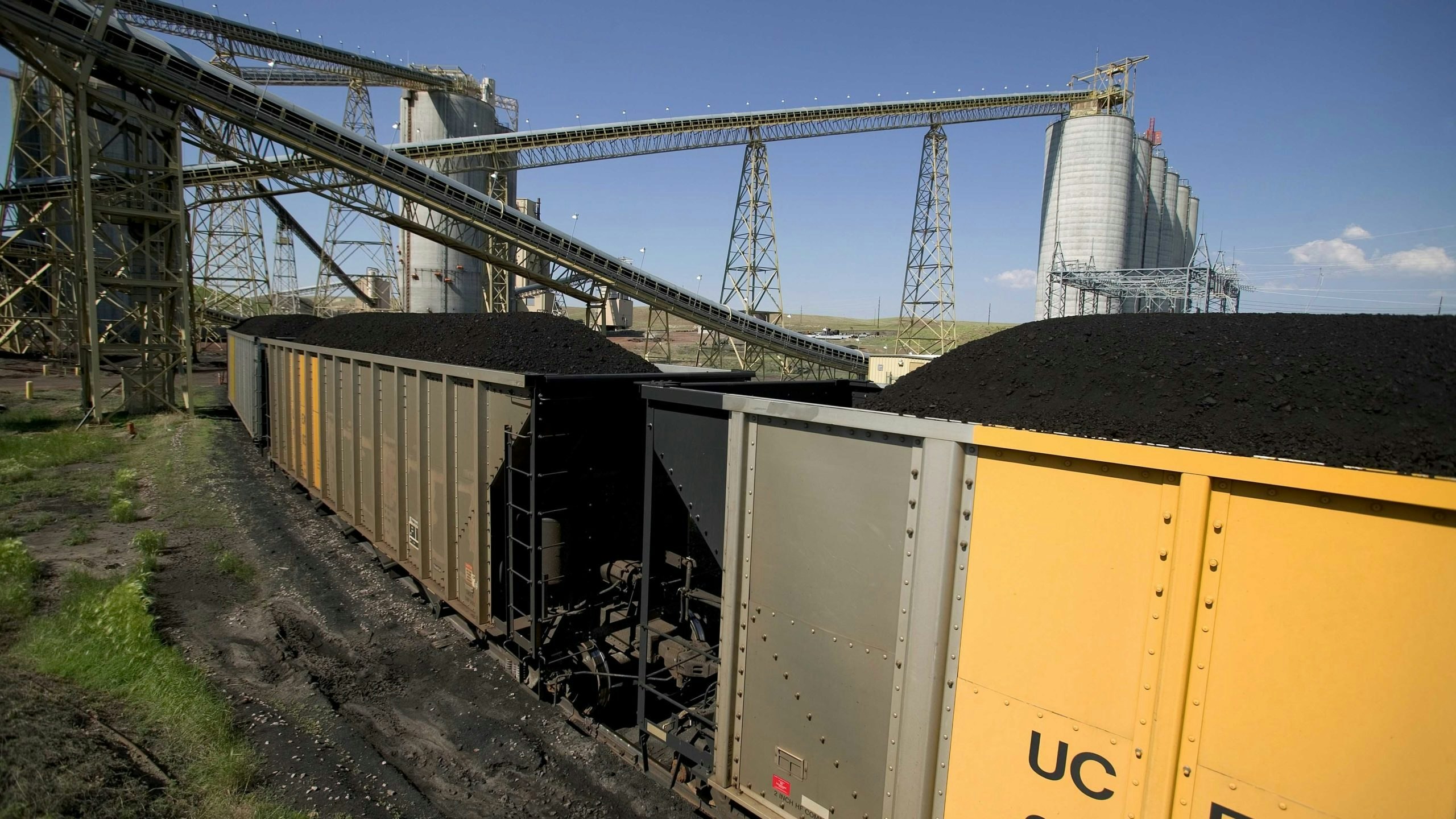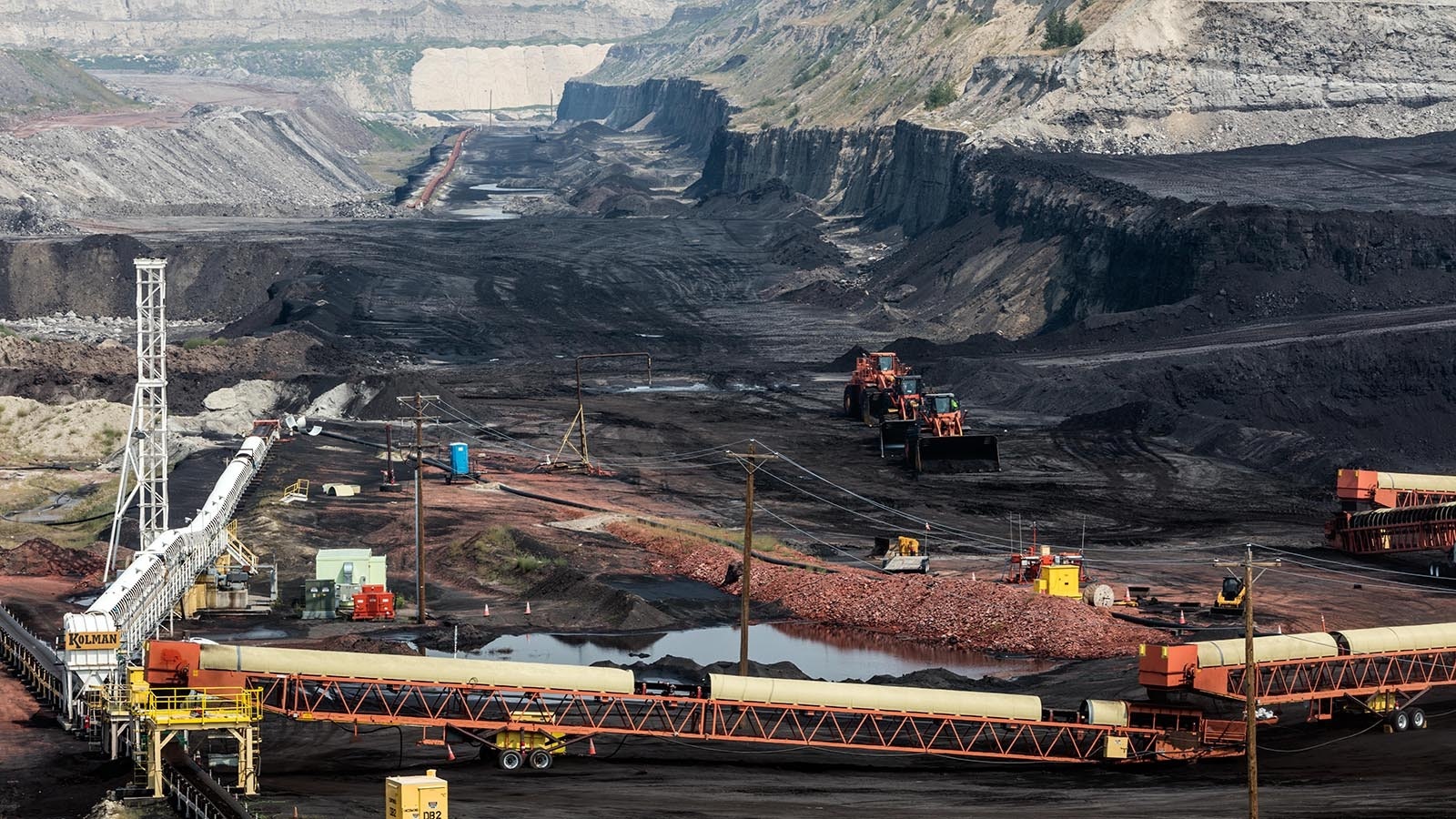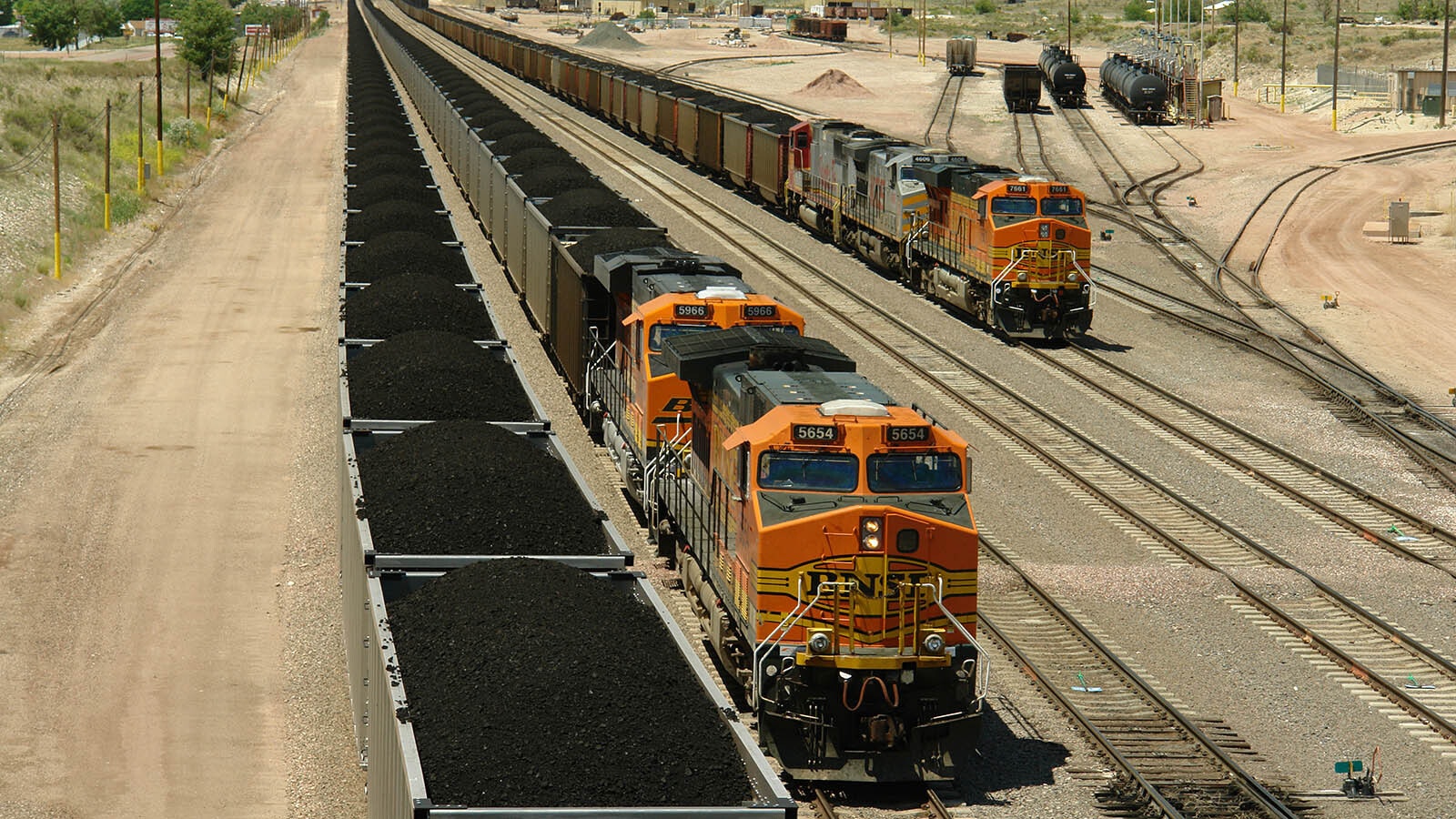Wyoming coal producers are struggling to get their product out and the possibility of a railroad worker strike is adding anxiety on top of limited rail capacity.
Randall Luthi, chief energy advisor for Gov. Mark Gordon, met with executives at Peabody Energy earlier this month. Production is up, but Luthi said Powder River Basin coal companies are having a hard time getting enough trains to ship it to customers.
“The biggest problem is getting it out of Wyoming,” Luthi said at a recent Wyoming Energy Authority meeting.
The situation has seen some small improvements recently, Luthi said, but Wyoming’s coal producers could, by some estimates, increase production 10% to 15% if the rail capacity was there.
“The market is there if Wyoming could just get it out on trains,” Luthi said.
High Production, Prices
As of Oct. 15, Wyoming has produced just over 197.4 million short tons of coal so far in 2022, according the federal Energy Information Administration. This is up nearly 11 million short tons from where Wyoming was Oct. 15, 2021.
Even with these gains, coal production is half what it was at its peak in the early 2000s. The record year for Powder River Basin coal was 2008, when more than 446 million tons were sold.
Coal prices were at nearly $17.50 per ton this week, a significant increase over recent years.
At a Wyoming Public Service Commission Hearing on Monday, James Owen, vice president of environmental fuels and mining for PacifiCorp, testified that the high price is a matter of supply and demand. While the conflict in Europe is having impacts, utilities have been trying to phase out coal. But the demand is still there.
“You have this very uncommon dynamic where coal becomes very much in high demand, but the supply isn’t there, because people have been phasing it out,” Owens said.
Catching Up
Luthi told Cowboy State Daily that trains were catching up to the potential for Wyoming’s coal supply to meet market demand, but “we aren’t there yet.”
Peabody executives, Luthi said, expect the situation to continue to improve as coal companies have been able to close up some of the labor shortage that has been one factor in limiting rail capacity.
However, the possibility of a railroad worker strike looms on the horizon in November.
In September, three years of contract negotiations had failed to come to an agreement. The unions demand pay increases and improvements in time-off policies, which the unions say cause workers to fear punishment when they take time off for medical appointments and family emergencies.
The Biden administration last month brokered a deal between the major U.S. railroads and the unions to avoid a strike, but one union so far has rejected a new five-year contract that includes 24% raises and $5,000 bonuses. Another five await members’ votes, while six have signed off on the agreement. All 12 must agree to the contract to avoid a strike, but Congress may intervene if it gets to that point.
Luthi said the impacts of a rail strike would go well beyond the coal industry.
It “would just stop everything. It isn’t just coal for Wyoming. It’s trona. It’s agricultural products. Everything that moves by rail will likely stop for as long as a strike would last, and that would be devastating to the economy for a while,” Luthi said.
Cowboy State Daily reached out to SMART Transportation Division, which represents 125,000 railroad workers, for comment but didn’t receive a response by press time.





